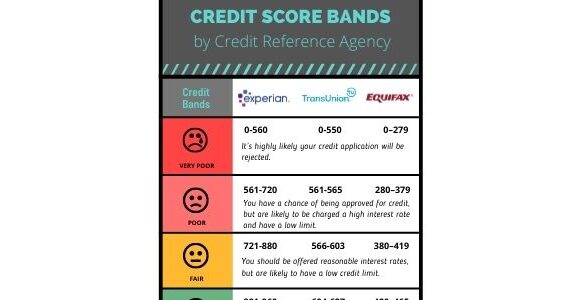Simple Mistakes That Can Ruin Your Credit Score

Published 26 October 2023
Your credit score is a three-digit number that lenders use to assess your creditworthiness. It’s based on your credit history, including your payment history, credit utilisation, and length of credit history. A good credit score can help you qualify for loans and credit cards with lower interest rates, which can save you money in the long run.
However, even small mistakes can damage your credit score. Here are some of the most common simple mistakes that can ruin your credit score:
1. Missing payments
Missing even one payment by 30 days or more can have a significant impact on your credit score. Lenders view late payments as a sign that you’re a risky borrower, so they’re more likely to charge you higher interest rates or deny your credit application altogether.
Even a single late payment can remain on your credit report for up to six years.
To avoid missing payments, set up automatic payments from your checking account. If you can’t afford to make the full payment each month, at least make the minimum payment on time.
2. Maxing out your credit cards
Your credit utilisation ratio is the amount of credit you’re using compared to your total available credit. Lenders prefer to see a credit utilisation ratio of 30% or less, and is a key factor in calculating your credit score. If you max out your credit cards, it will raise your credit utilisation ratio and damage your credit score, as it indicates to creditors that you may be overextended financially.
To keep your credit utilisation ratio low, try to use less than 30% of your available credit on each card. If you have a large balance on one card, try to transfer it to a card with a lower interest rate and higher credit limit.
3. Applying for too many credit lines in a short period of time
Every time you apply for a new credit card or loan, a hard search is placed on your credit report. Hard searches can temporarily lower your credit score, especially if you have multiple hard searches in a short period of time.
Too many applications can signal to creditors that you may be seeking excessive credit, which can be seen as a risk.
To avoid this mistake, be selective about applying for new credit lines. Only apply for credit when you genuinely need it, and space out your applications to minimise the impact on your credit score.
4. Not reviewing your credit report regularly
Some people make the mistake of neglecting their credit scores until they need to use credit for a significant purchase. Your credit score is not something you should only be concerned about when you are applying for a loan or credit card. Regularly monitoring your credit score can help you catch and address potential issues early.
Your credit report contains a detailed history of your credit activity. It’s important to review your credit report regularly to make sure it’s accurate and up-to-date.
Fortunately, there are many resources available that offer free credit monitoring and access to your credit score. Keeping an eye on your credit score can help you identify and correct any errors promptly.
Common errors include incorrect personal information, accounts that don’t belong to you, or accounts reported as late when they were not.
5. Closing old credit accounts
Closing old credit accounts can shorten your average age of credit, which can lower your credit score. A longer average age of credit shows lenders that you have a responsible credit history.
If you have old credit accounts that you no longer use, consider keeping them open and paying off the balance in full each month. If you do need to close an old credit account, try to do it one at a time and over a period of time.
6. Co-signing for Someone With Poor Credit
Co-signing a loan or credit card for someone with a poor credit history can be a risky move. When you co-sign, you’re essentially taking on the responsibility for the debt if the primary borrower fails to make payments. If they miss payments or default on the debt, it can negatively impact your credit score.
Before co-signing for someone, carefully consider the risks and whether you’re willing and able to assume the financial responsibility if things go south. It’s often advisable to avoid co-signing unless you’re absolutely confident in the other person’s ability to manage the debt responsibly.
Tips for avoiding credit score mistakes
Here are some tips for avoiding credit score mistakes:
- Set up automatic payments for all of your bills.
- Keep your credit utilisation ratio below 30%.
- Shop around and compare offers from different lenders before you apply for a new credit card or loan.
- Review your credit report regularly and dispute any errors.
- Keep old credit accounts open and pay off the balance in full each month.
- Avoid co-signing on loans for other people.
- Pay all of your bills on time, even if they’re not reported to the credit bureaus.
Struggling with Bad Credit? Ready to Drive a New Car?
Wondering how to get behind the wheel with less-than-perfect credit? Explore our tailored bad credit car leasing options at Compass Vehicle Services.



